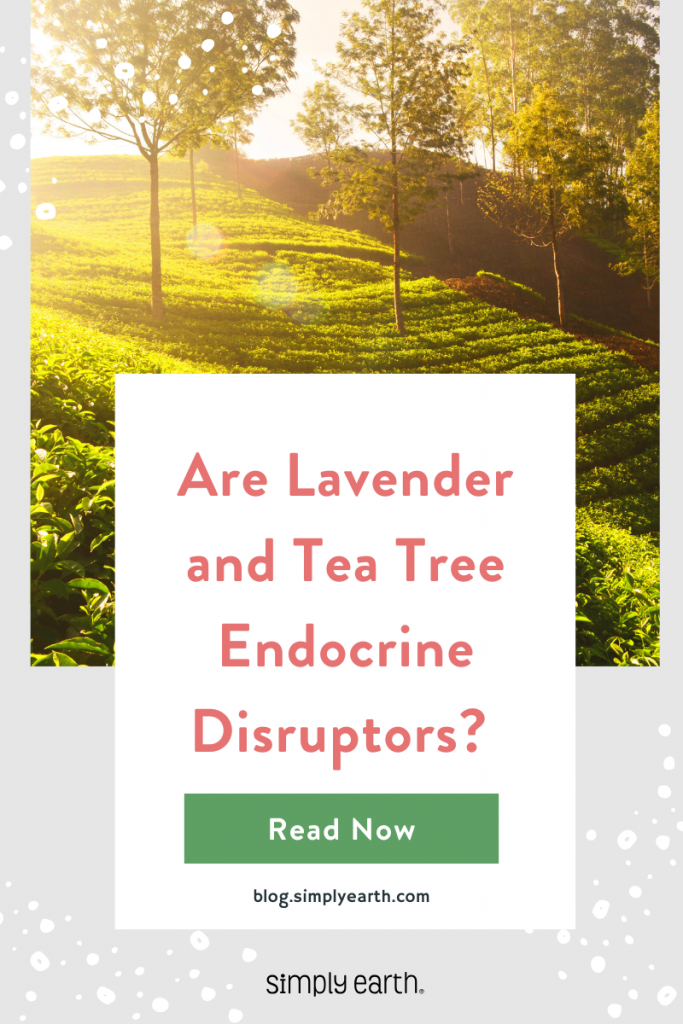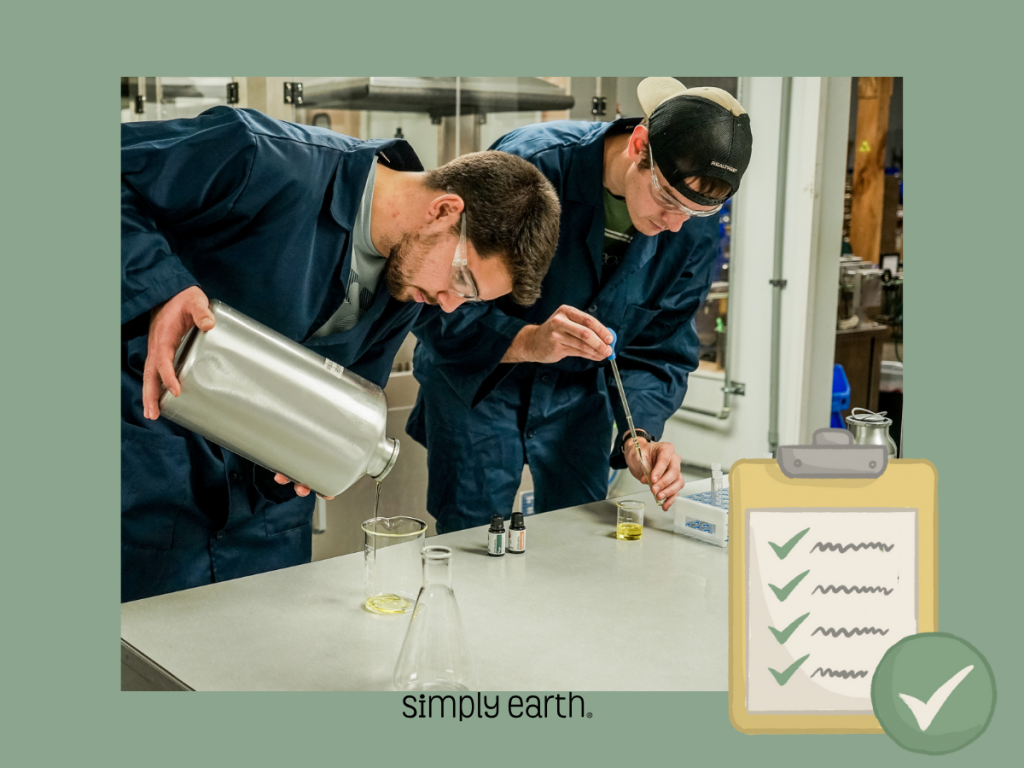
We love that our Simply Earth community asks thoughtful questions—and this one has been popping up more often:
“Are essential oils endocrine disruptors?”
It’s a smart question, especially when it comes to popular oils like lavender and tea tree. In this post, we’ll walk through the origin of the concern, what the most up-to-date research says, and how we approach oil safety at Simply Earth.
🌿 Where the Concern Comes From
The idea that lavender or tea tree essential oils could be endocrine disruptors traces back to a 2007 case study. It looked at a few young boys who had developed gynecomastia (the development of breast tissue). The study suggested a potential link between the condition and personal care products containing lavender or tea tree oil.
But there’s more to this story:
- These weren’t pure essential oils—they were commercial products like lotions and shampoos that included many ingredients, such as parabens and phthalates, which are known to interact with hormones.
- The study was observational, not a controlled clinical trial. It raised a question—it didn’t prove a cause.

Since then, researchers have taken a closer look using more rigorous methods. And here’s what they found:
🔬 What the Research Says Now

In a 2020 study published in the International Journal of Environmental Research and Public Health, scientists tested pure lavender and tea tree essential oils on human cells. The study did not find evidence that these oils disrupted hormones when used appropriately.
What this confirms is something that certified aromatherapists already prioritize: essential oils must be used correctly. They’re highly concentrated and effective—but only when used at safe dilutions and in the proper context.
💧 What Makes Simply Earth’s Oils Different?
We completely understand your desire to know what makes Simply Earth oils unique. The short answer? A whole lot of transparency, testing, and education.
1. 100% Pure, Tested Essential Oils

Every batch of Simply Earth oil is GC/MS tested by a third-party lab to verify its purity. That means:
- No fillers
- No synthetic ingredients
- No hidden contaminants
We make our test results accessible so you can shop with confidence.
2. Trusted Recipes + Dilution Guidelines
Safety isn’t just about the oil—it’s also about how it’s used. Every Simply Earth Recipe Box includes formulations by certified aromatherapists, with clear dilution guidance for:
- Different ages and sensitivities
- Topical vs. aromatic use
- Proper measuring for DIY recipes
3. Education Over Fear
We don’t believe in fear-based marketing. Instead, we’re here to support your natural lifestyle with knowledge and flexibility. If you or a loved one is avoiding an oil like lavender or tea tree, we’re more than happy to help you find a suitable alternative that suits your comfort level.
👩⚕️ What About Experts Who Recommend Avoiding These Oils?
If your healthcare provider or a trusted specialist recommends avoiding certain essential oils, we respect that decision. Essential oils are concentrated and powerful, and it makes sense to be cautious, especially when it comes to children or sensitive individuals.
It’s important to remember that essential oil safety depends on a few key factors:
- The oil’s purity
- How it’s used (topical, aromatic, etc.)
- Who is using it
- The amount used (aka dilution)
There’s no one-size-fits-all rule—and that’s precisely why our team is here. We’ll guide you through safe alternatives and help you adjust recipes with confidence.
🌸 Looking for Lavender or Tea Tree Alternatives?

Need to swap an oil in a recipe? Here are some gentle, versatile alternatives that work in many DIYs:
🌿 Instead of Lavender Essential Oil, try:
- Roman Chamomile – Calming and great in bath and body products.
- Ho Wood – A soft, woodsy oil with a naturally high linalool content.
- Geranium – Floral and balancing, perfect for skincare and emotional support.
🌿 Instead of Tea Tree Essential Oil, try:
- Eucalyptus (Globulus) – Known for its fresh, invigorating aroma, commonly used in diffusers and cleaning blends.
- Lemon – A bright, cheerful oil often used in home care and uplifting diffuser recipes.
- Rosemary – A herbaceous favorite, often included in hair care and surface-cleaning recipes.
🧼 These alternatives can be used in many of our recipes. If you’re unsure about which swap is right, just reach out—we’re happy to help!
🙋♀️ Still Have Questions?
We’re always here to talk about oil safety, swaps, or whatever questions are on your mind. Whether you’re a long-time DIY-er or just getting started, we want you to feel informed and supported every step of the way.
💚 Natural living should feel approachable, not overwhelming. Let’s make it simple, safe, and fun—together.

